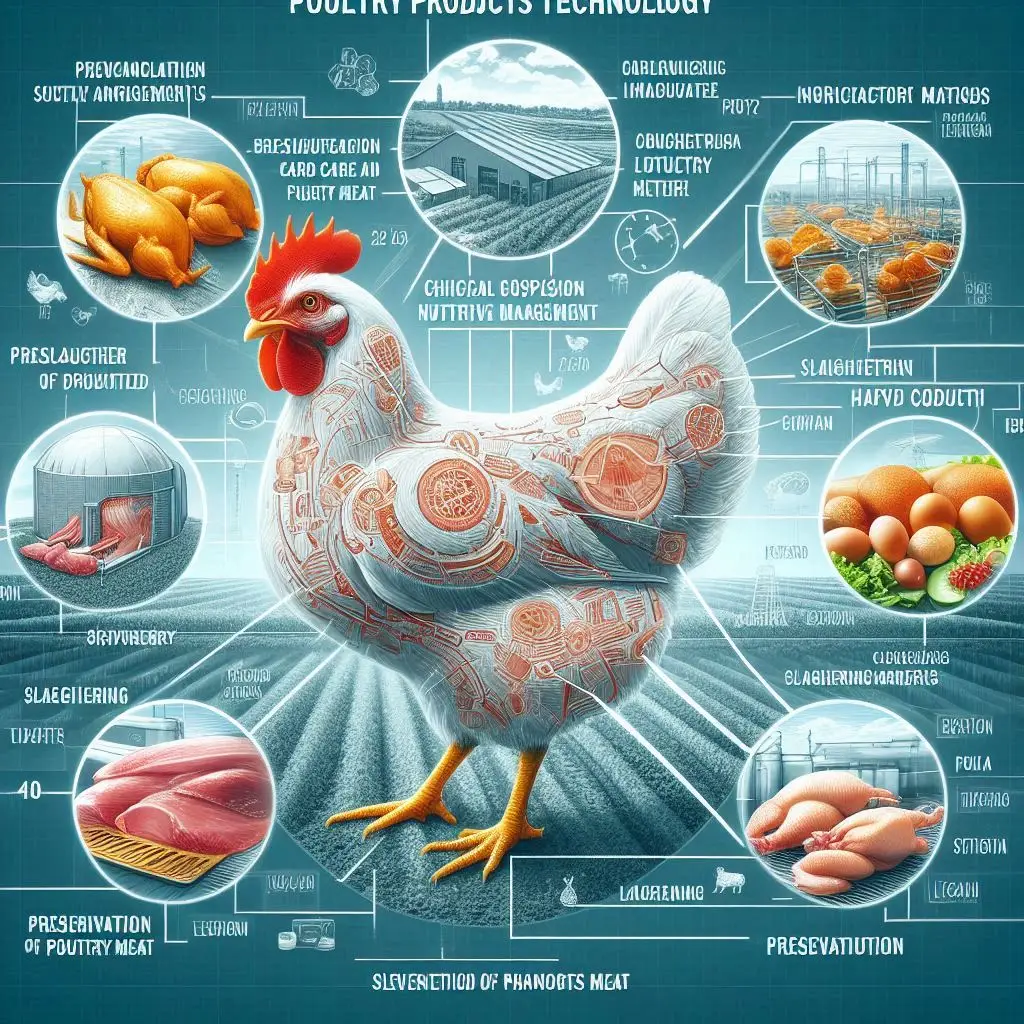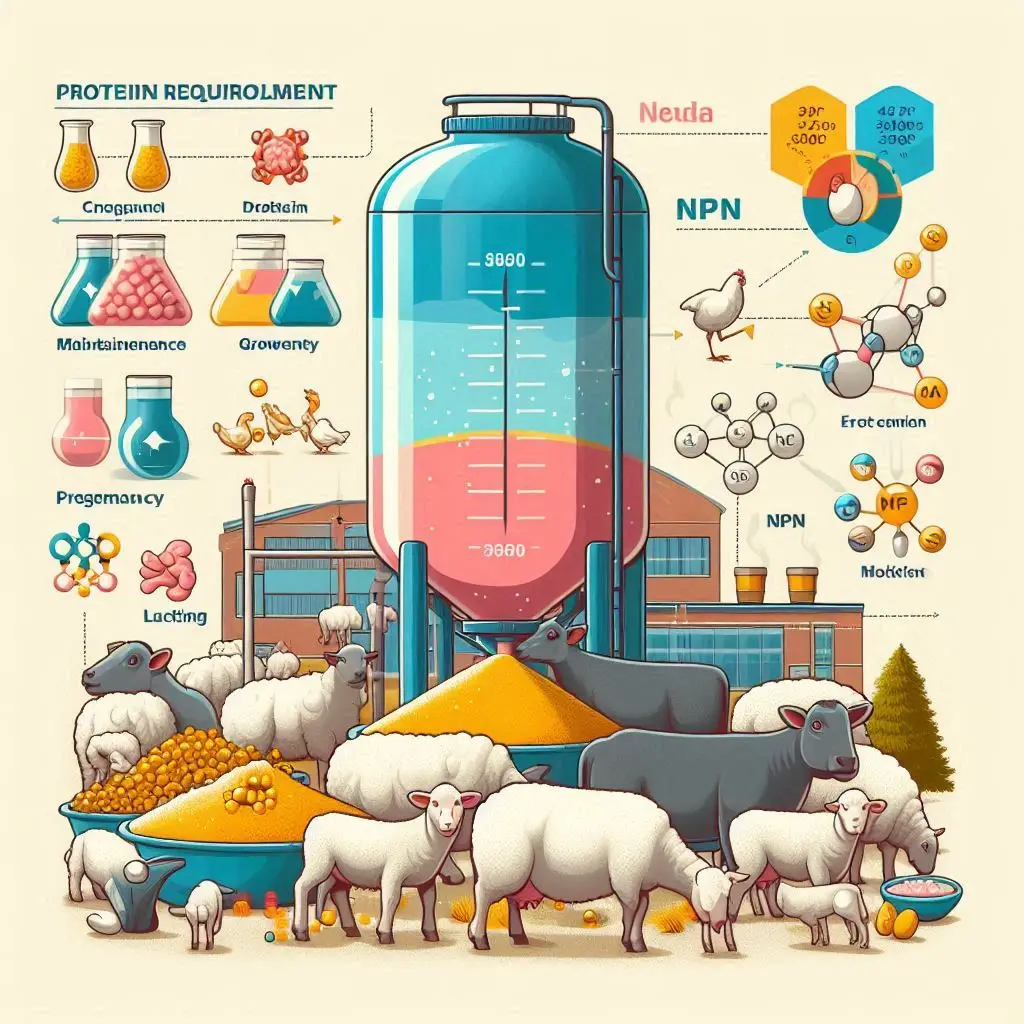The Nutritional Power of Poultry Meat

Introduction to Poultry Meat Nutrition
Poultry meat, particularly chicken, is a staple in many diets worldwide. Its popularity stems from its versatility, affordability, and nutritional benefits. In this article, we will explore the chemical composition and nutritive value of poultry meat. We will also discuss how it contributes to a healthy diet.
The Chemical Composition of Poultry Meat
Poultry meat consists of various components, including water, protein, fat, vitamins, and minerals. Understanding these components helps us appreciate its nutritional value.
Water Content
Water makes up about 70% of poultry meat. This high water content contributes to its juiciness and tenderness. It also plays a vital role in maintaining hydration in the body.
Protein in Poultry Meat
Poultry meat is an excellent source of high-quality protein. On average, it contains about 25% protein. This protein is crucial for:
- Building and repairing tissues
- Producing enzymes and hormones
- Supporting immune function
The protein in poultry meat contains all essential amino acids. These amino acids are vital for various bodily functions, making poultry an excellent choice for muscle maintenance and growth.
Fat Content in Poultry
The fat content in poultry varies based on the cut and whether the skin is included. Skinless chicken breast contains around 2-3% fat, while dark meat, such as thighs, contains about 5-10% fat.Types of Fat:
- Saturated Fat: Present in small amounts, which is beneficial for heart health when consumed in moderation.
- Unsaturated Fat: Predominantly found in poultry, this type of fat can help lower bad cholesterol levels.
Vitamins and Minerals in Poultry Meat
Poultry meat is rich in essential vitamins and minerals. Here are some key nutrients found in poultry:
B Vitamins
Poultry is an excellent source of B vitamins, including:
- Niacin (B3): Supports metabolism and skin health.
- Vitamin B6: Aids in brain development and function.
- Vitamin B12: Essential for red blood cell formation and nerve function.
Minerals
Poultry meat contains several important minerals:
- Iron: Crucial for oxygen transport in the blood.
- Zinc: Supports immune function and wound healing.
- Phosphorus: Important for bone health and energy production.
Cholesterol Levels
Poultry meat has a relatively low cholesterol content compared to red meat. Skinless chicken breast contains about 70-80 mg of cholesterol per 100 grams, making it a heart-healthy protein choice.
Health Benefits of Poultry Meat
Poultry meat offers numerous health benefits. Here are some reasons to include it in your diet:
1. Supports Muscle Growth and Repair
The high protein content in poultry meat is essential for muscle growth and repair. Whether you are an athlete or just looking to maintain muscle mass, poultry can help you achieve your goals.
2. Aids in Weight Management
Poultry meat is low in fat and calories, especially when consumed without the skin. This makes it an excellent choice for weight management. Lean protein helps you feel full longer, reducing the likelihood of overeating.
3. Promotes Heart Health
The unsaturated fats found in poultry can help lower bad cholesterol levels. Additionally, the presence of B vitamins supports cardiovascular health, making poultry a heart-friendly option.
4. Boosts Immune Function
The vitamins and minerals in poultry meat, particularly zinc and B vitamins, play a crucial role in supporting the immune system. A strong immune system helps protect against illnesses and infections.
5. Supports Bone Health
The phosphorus and calcium content in poultry meat contributes to bone health. These minerals are essential for maintaining strong bones and preventing osteoporosis.
Cooking Methods for Poultry Meat
How you prepare poultry meat can affect its nutritional value. Here are some healthy cooking methods:
Grilling
Grilling poultry allows excess fat to drip away, resulting in a lower-calorie meal. It also enhances flavor without adding extra calories.
Baking
Baking poultry is another healthy option. It retains moisture while avoiding added fats. Consider seasoning with herbs and spices for added flavor.
Steaming
Steaming poultry helps preserve nutrients. This method keeps the meat tender and juicy without adding extra fat.
Stir-Frying
Stir-frying with vegetables can create a balanced meal. Use minimal oil and add a variety of colorful veggies to enhance the nutritional profile.
Tips for Selecting and Storing Poultry Meat
When purchasing poultry meat, consider the following tips:
Choosing Quality Poultry
- Freshness: Look for bright, pink meat with no off-odors.
- Packaging: Ensure the packaging is intact and free of leaks.
- Organic Options: Consider organic poultry for fewer additives and antibiotics.
Storing Poultry Meat
- Refrigeration: Store raw poultry in the refrigerator and use it within 1-2 days.
- Freezing: For longer storage, freeze poultry meat. It can last up to 9 months in the freezer.
- Thawing: Always thaw poultry in the refrigerator or microwave, never at room temperature.
Conclusion
Poultry meat is a nutritious and versatile protein source that provides numerous health benefits. Its rich composition of protein, vitamins, and minerals makes it an essential part of a balanced diet. By understanding its nutritional value and choosing healthy cooking methods, you can enjoy the many advantages that poultry meat offers.
For more pearls of Vets Wisdom:
https://wiseias.com/partitioning-of-food-energy-within-animals/






Responses